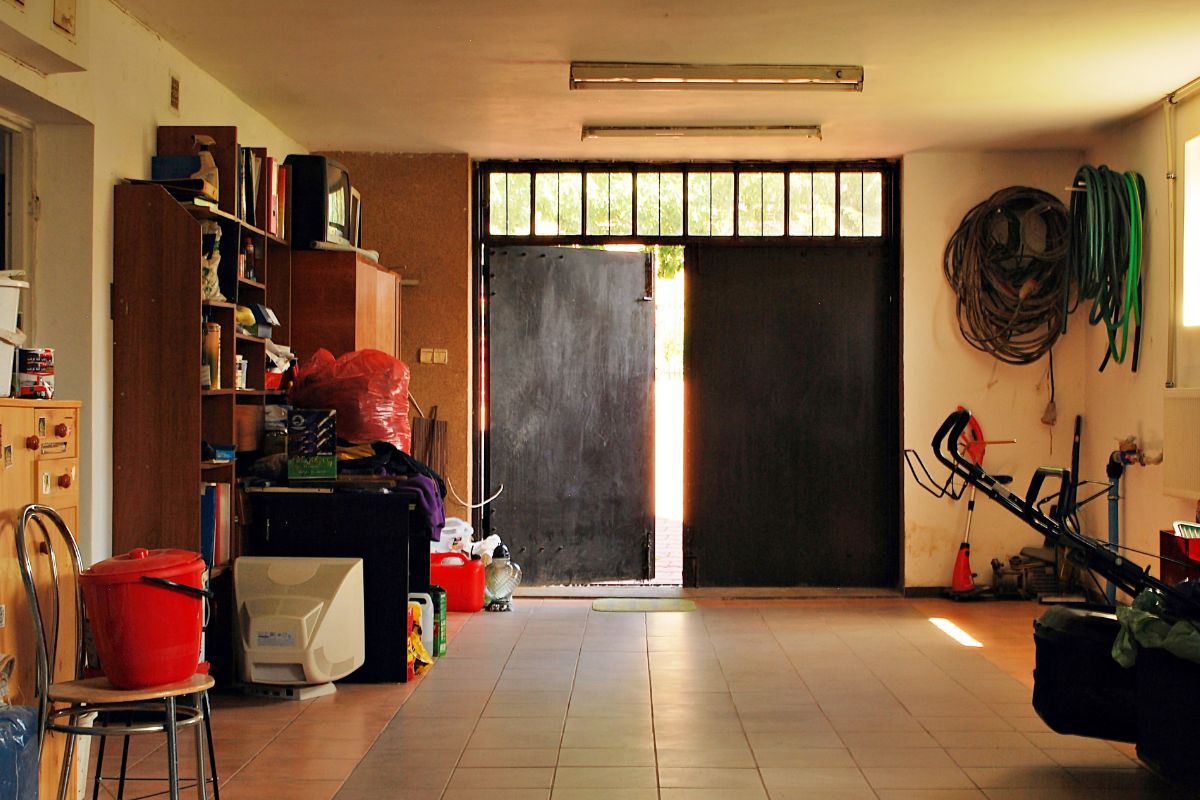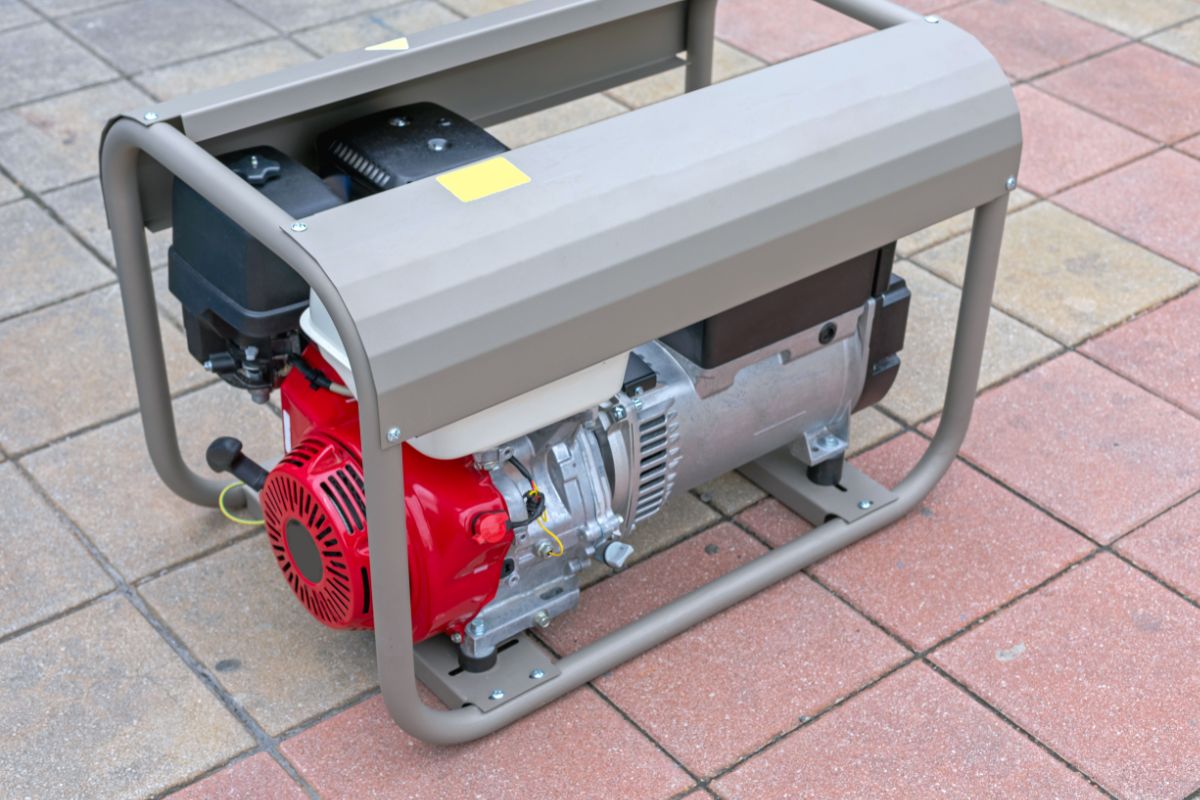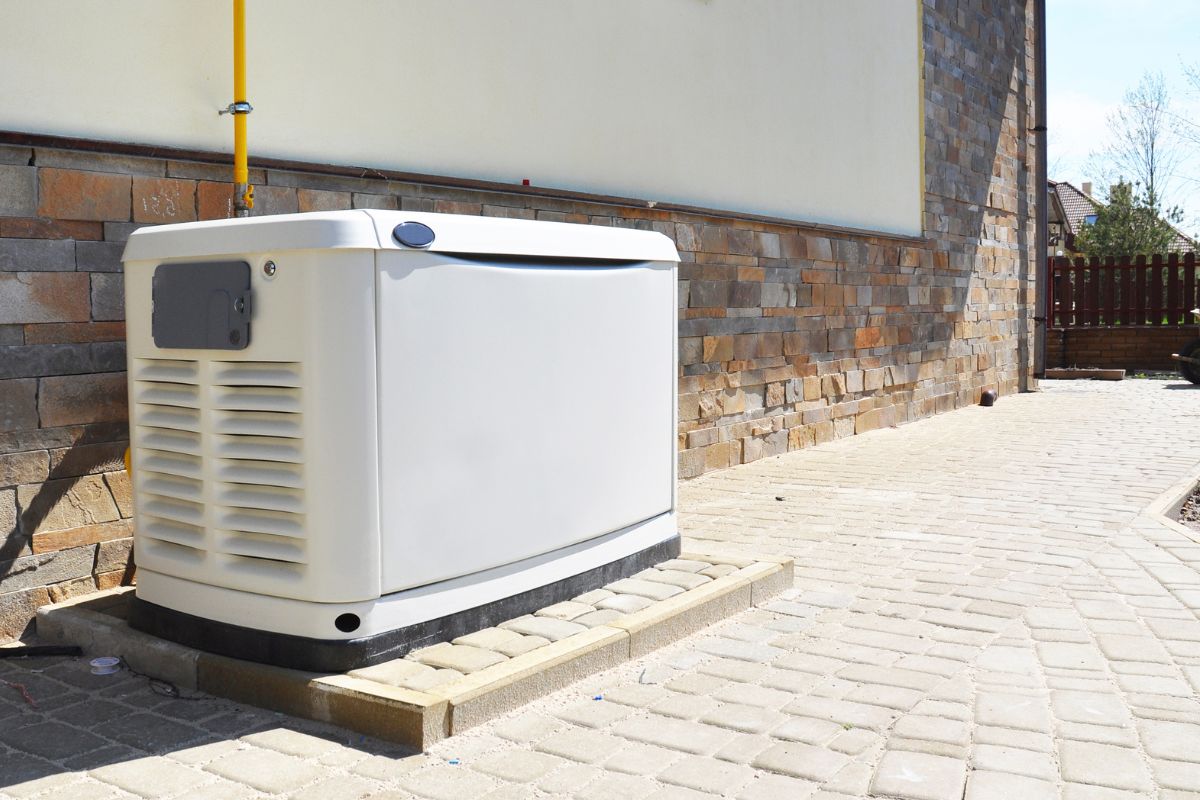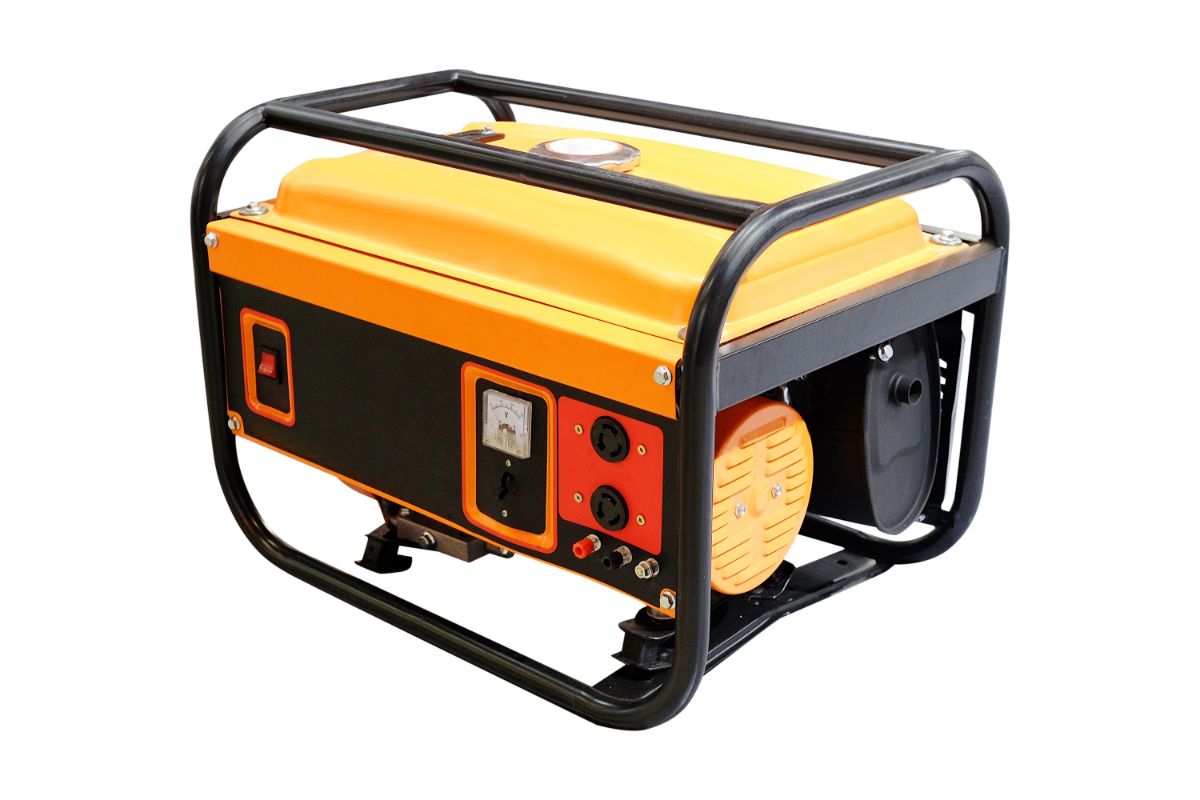Needless to say, the best place to install solar panels is a rooftop, but does that mean that those of us with no access to a rooftop – i.e. those of us with stubborn landlords or those of us that live in apartment complexes – can’t set up a solar array?

With energy costs skyrocketing, without a supplementary green energy source, we often find ourselves living paycheck to paycheck, but this doesn’t have to be the case!
There are tons of fantastic solar panels with versatile installation options, allowing you to set up a modest, yet reliable solar farm on your balcony, and I’m going to show you the best of the best right here, right now.
Best Solar Panel Options For Balconies: Reviews
sOLAR PANEL Editor’s Pick
EcoFLow 160-Watt Portable Solar Panel
Best For Tiny Balconies
Best Rigid Panel
Editor’s Pick
EcoFLow 160-Watt Portable Solar Panel
This portable EcoFlow solar panel is just what you need to make that sun-bleached balcony work for you.
Featuring numerous metal grommets around the perimeter through which you can lace rope or bungee cords, you can secure it on the outside of your balcony, well away from shade, thereby optimizing your solar yield.
Being that it has an IP67 rating, you won’t have to worry about untying and providing it shelter during rainfall of any ferocity, which is a huge effort- and time-saver.
But if you do have to pack it up from time to time, even if you’ve got quite a compact apartment, the foldable quarters allow you to house it in a very small space.
Weighing in at only 15.4 lbs, it’s a safe choice, as even if the worst does happen, and it falls from height, there’s only so much damage it can do, and you never know, it might just survive the fall, as there’s no glass in the design whatsoever.
It also comes with a kickstand, so you can still set it up easily without anything to bind it to your balcony, but during my tests, I found it’s worth securing the stand with a heavy rock during strong winds.
Pros
- IP67 — Dustproof and resistant to heavy showers
- Grommet holes — You can strap it to the outside of your balcony to avoid partial shading
- Foldable — Unobtrusive in storage, even in small spaces
- Kickstand — Easy setup
Cons
- Size — It might be too long for particularly small balconies
Also available from Aliexpress
Best For Tiny Balconies
Solperk Solar Panel Kit
This Solperk panel proves that even those with truly minuscule balconies can benefit from solar power.
Granted, the 20-watt output isn’t going to knock too much off your monthly energy bills, but it will take care of charging all your small electronics, which, over time, will have its financial benefits.
What’s more, it comes with an integrated swing-out kickstand for effortless setup, which is great if you want to get started sucking in some sunlight ASAP.
Plus, it arrives as a full kit, so you really can start your green energy adventure as soon as it shows up on your doorstep.
Despite the reasonable price tag, it’s a monocrystalline design that performed incredibly well during my tests, reaching very near the advertised capacity in direct sunlight, but I’m not sure how it would hold out in extreme weather, so it’s best kept as a temporary installation.
Pros
- Dimensions — Measuring only 14.6 x 13.2 x 0.7”, it’s perfect for use on smaller balconies
- Full kit — No aftermarket purchases require to get it up and running
- Integrate bracket — Couldn’t be easier to set up
- Price — Suitable for tight budgets
Cons
- 20-watt output — Not going to be life-changing
Also available from Walmart
Best Rigid Panel
Renogy 200-Watt Solar Panel
The benefit of choosing a rigid rather than plastic panel is that you get a much better efficiency:surface area ratio, which can be a godsend in cramped spaces.
On the other hand, a typical drawback is lack of flexibility where installation is concerned, but this fantastic panel from Renogy has you covered with an adjustable mount bracket.
Rated for 200 watts, this monocrystalline panel stands to offset your energy bills quite a bit, and as it’s quite thin and light (26.46 lbs), it’s more manageable in a tight spot than you might think.
With an IP65 junction box, it’s also relatively brave in the face of rain, meaning as long as it has some shelter when things get really brutal outside, it can stay out indefinitely— It can even handle winds up to 2400 Pa and snowloads up to 5400 Pa.
It’s a bit pricier than other options on this list, but if you’d rather shoot for a rigid panel, it is the best in the biz.
Pros
- 200 watts — Significant output for the size
- 26.46 lbs — Lightness makes it manageable in confined spaces
- Mount included — Adjustable mount allows you to set optimal angle
- Bypass diodes — Protect against energy loss in partial shade
Cons
- Installation — Not a lot of flexibility
Also available from Orionvangear
Best Budget Option
Dokio 110-Watt Portable Solar Panel Kit
This Dokio offering comes in the form of a single-piece foldable panel with an output of 110 watts, which I’d consider pretty good value if it came on its own, but it just so happens that it arrives as part of a comprehensive solar kit!
In this package, you’ll find everything you need to get started, and despite the price tag, it’s all pretty good gear.
The charge controller was particularly good for this price point, complete with dual USB ports for charging 12V batteries with ease.
With the red border, this panel isn’t as neutral as the others on this list, which may be an issue if it’s going to be on show on your balcony, but the grommet holes within said border enable installation in front of your railing, which is an ideal location.
It performed well during my tests, but where I see this one falling short is weatherproofing. It can handle the odd shower, but it’s by no means a permanent installation and won’t endure sustained exposure to the elements.
Pros
- Price — You get great bang for your buck with this panel
- Full kit — No aftermarket purchases necessary
- Dimensions — Won’t take up too much valuable balcony space
- Foldable — Packs away nice and thin for easy storage
Cons
- Weatherproofing — You’ll need to bring it indoors when it’s raining hard
Also available from eBay
Best With Battery
Jackery SolarSaga Solar Panel W/ Jackery Explorer 1000
To harvest solar energy, you need something to store it, and in my eyes, the Jackery Explorer 1000 is a great choice for balcony setups.
The panels themselves have corner grommet holes, giving you more installation options, and as they’re foldable, they’re easily stored in tight spots.
Rated for 100 watts each, they’ll provide enough energy to keep your small appliances alive and kicking.
For instance, during my tests, they managed to run my coffee maker, my radio, and my small LCD TV. But if you manage to draw enough energy to top the Explorer up, you can power much more demanding electronics.
The solar battery is also nice and compact, meaning you could keep it out on the balcony in good weather, thereby reducing cable length, which will in turn minimize power loss.
The only drawback is that these panels don’t fare well in the rain, so you can’t just leave them set up indefinitely.
Pros
- Jackery Explorer 1000 — Fantastic solar battery to boost your power potential
- 200 watts — Powerful mono panels make the most of indirect sunlight
- Grommet holes — Can be lashed to your balcony railings for maximum sun exposure
Cons
- Weatherproofing — Not great in bad weather, so you’ll need to provide shelter from time to time
Also available from Foticut
Best Solar Panel Options For Balconies Buying Guide
Even after seeing my solar panel shortlist, it can be hard deciding what makes one solar panel good for use on balconies and another not so good, so let’s take a look at the essential elements you should be looking for in such an item.
Dimensions
As balconies are typically very small spaces, often already cramped with potted plants, a table and chair set, and other outdoor items, it’s important to look for more modestly sized solar panels.
Before you begin shopping around, I highly recommend taking some measurements of your outdoor space, so you can then seek out appropriately-sized panels.
Panel Count
Likewise, it’s important not to get too carried away when it comes to the number of panels, as, again, you probably haven’t got all that much space to work with. Typically speaking, two- to four-panel kits will be best suited to balcony use.
Wattage
The wattage output of your panels will also relate to their dimensions. Usually measuring around 150 x 170 cm, I’d consider 160 watts to be the best balance between output and size for balconies, although, if you have a slightly larger space, I’d recommend looking into 320-watt panels as well.
Mount/Installation Type
After size, you need to consider the mount/installation type of your prospective balcony solar panels.
The absolute best for the job will arrive with corner and edge holes secured with grommets, so you can thread rope or bungee cord through them so you can attach the panels to the outside of your balcony railing, thereby optimizing sun exposure and maximizing your solar yield.
More common are solar kits with integrated kickstands. These are great too, but the shadowing of your rails can seriously limit efficiency, so you may have to elevate a kit like this then secure it somewhere so it doesn’t blow away in strong winds.
Individual Vs. Chained Solar Panels
There’s no right or wrong when it comes to discrete vs. connected solar panels, as there are pros and cons to both setups.
Linked-up panels take care of most of the wiring, making set up a total breeze, but discreet solar panels give you more flexibility in terms of layout. You can spread them out to optimize your energy yield.
For example, you could strap one to each side of your balcony and then the rest across the front of your railings, so you’re pulling free energy no matter where the sun is in the sky.
Rigid Vs. Thin Plastic Solar Panels
Rigid panels are fantastic static units for rooftops, but they can be a little problematic on a balcony. Firstly, if you plan on strapping your panels to the outside of your balcony railing, there’s always a small chance that they’ll come loose and fall from what could be a great height.
While both rigid and plastic solar panels will do a fair amount of damage to a person or vehicle if they fell from a balcony, a rigid solar panel is far more deadly.
What’s more, a rigid panel is sure to be completely destroyed, whereas a flexy panel will probably still work despite being a little battered and bruised.
If You Go With Rigid Panels
Should you opt for rigid panels, they won’t arrive with a kickstand as they’ll be too heavy for such a small support, but that doesn’t mean you can’t use them on your balcony. All you need to harvest some sweet, sweet solar power with your rigid panels is a flat roof mount.
If You Go With Plastic Panels
Plastic panels are often splash-proof but not always completely weatherproof, so you’d have to be very wary of the weather forecast when setting them up.
IP Rating
While we’re on the subject of weatherproofing, we should discuss IP ratings. IP stands for “Ingress Protection”, and the numbers that follow in an IP rating indicate the level of dust and water resistance of a product.
For solar panels, I’d recommend IP65 as an absolute minimum, as this means it is dust tight and protected against moderately powered water jets at any angle, but for ultimate protection, choose something with an IP68 rating.
These products are both dust tight and can handle permanent submersion up to 13 feet, meaning you’d rarely have to remove them from your balcony.
Panel Type
Panel type has nothing to do with balconies, but it is something to consider. The two primary forms of commercially available panels are polycrystalline and monocrystalline.
Polycrystalline panels are formulated from multiple silicon crystals, a fractured composition that limits their efficiency.
By contrast, monocrystalline panels are composed of a single silicon crystal, giving a oneness to the cells that increases efficiency.
The difference between these panel types isn’t as distinct as many people believe, but over time, the ldesign of poly panels can reduce your yield by quite a bit. They’re often far more affordable than the mono counterparts, though, so that’s something to consider too.
Frequently Asked Questions
Can You Put Solar Panels On A Balcony?
There are a few different ways you can secure solar panels on a balcony and pull in some pretty impressive supplementary energy.
You can strap them to the outside of the railings, use a kickstand to set them up behind the railings, use a platform to elevate them above your railings… as long as it’s safe for you and those around you, you’re good to go!
With limited space, your peak times will be relatively limited, but you can still pull in a decent amount of energy during the summer months.
Which Solar Panel Is Best For Low Sunlight?
As you’ll be dealing with a lot of indirect sunlight on your balcony, it’s important to choose an efficient type of solar panel to make the venture worth your while, which is why I’d suggest using monocrystalline panels exclusively.
Are Flexible Solar Panels Good For Balconies?
Flexible panels do have their advantages. For example, they’re almost always weatherproof. But for balconies, I’d stick to either thin plastic or rigid solar panels, as they’re more efficient, and as previously mentioned, you’ll need to make the most of all that indirect sunlight.
What Are The Dangers Of Solar Panels On Balconies?
Aside from the standard electrical hazards, there are a number of potential dangers to consider before setting up a solar array on your balcony.
The most immediate risk is that it will get in your way and cause a fall, but there’s also a chance that it’ll come loose, posing a hazard to people and objects below your balcony.
Always make sure that any solar panels you set up on your balcony are as secure as possible. The last thing you want is a costly repair bill for someone’s car, or worse still, the medical bill for indirectly injuring someone by not installing your array responsibly.
Is It Worth Putting Solar Panels On My Balcony?
Unless your balcony is north-facing, then yes, solar panels are a good idea to offset some of your energy bills. Much like roof installations, south-facing balconies are by far the best, as they receive the lion’s share of the sunlight throughout the day.
Final Thoughts
Your balcony may only be small, but with a set of the solar panels discussed here today, it can pay off BIG time in the energy savings department, which is exactly what we need in this day and age.
Will it be as effective as a roof installation? No, not quite, but that doesn’t mean you shouldn’t give it a go and reduce your carbon footprint!











